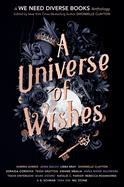 For Thursday night's MPIBA FallCon keynote, Feast of Fiction, Cristina Rodriguez of Deep Vellum Books in Dallas, Tex., introduced the six authors featured.
For Thursday night's MPIBA FallCon keynote, Feast of Fiction, Cristina Rodriguez of Deep Vellum Books in Dallas, Tex., introduced the six authors featured.
Brandon Hobson discussed his novel The Removed (Ecco, February 2021), set in Southeast Oklahoma, where a policeman shot a teenage boy. Fifteen years after the shooting, the boy's mother is trying to bring the family together. The Echota family is Cherokee Nation, Oklahoma.
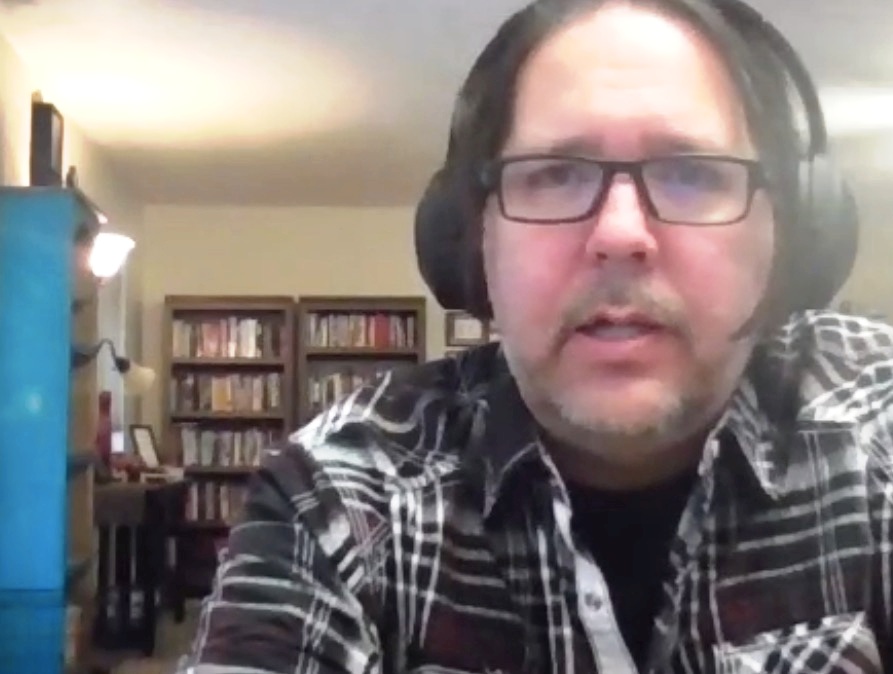 |
| Brandon Hobson |
"Their last name refers to the Echota Treaty, and there's a spirit voice, Tsala (based on a real figure, Tsali), who refused to leave the land and was killed for it," Hobson said. Each family member is attempting to heal from their trauma. The father, Ernest, suffers from Alzheimer's. When the family takes in Wyatt as a foster child, Ernest's symptoms start to diminish, and the family believes it's due to the resemblance between Wyatt and Ray Ray, their son who was killed. Their daughter is in love with a non-Native man. The youngest brother, Edgar, finds himself in the darkening land, an alternate universe where there is gun violence and racism, especially toward Native Americans.
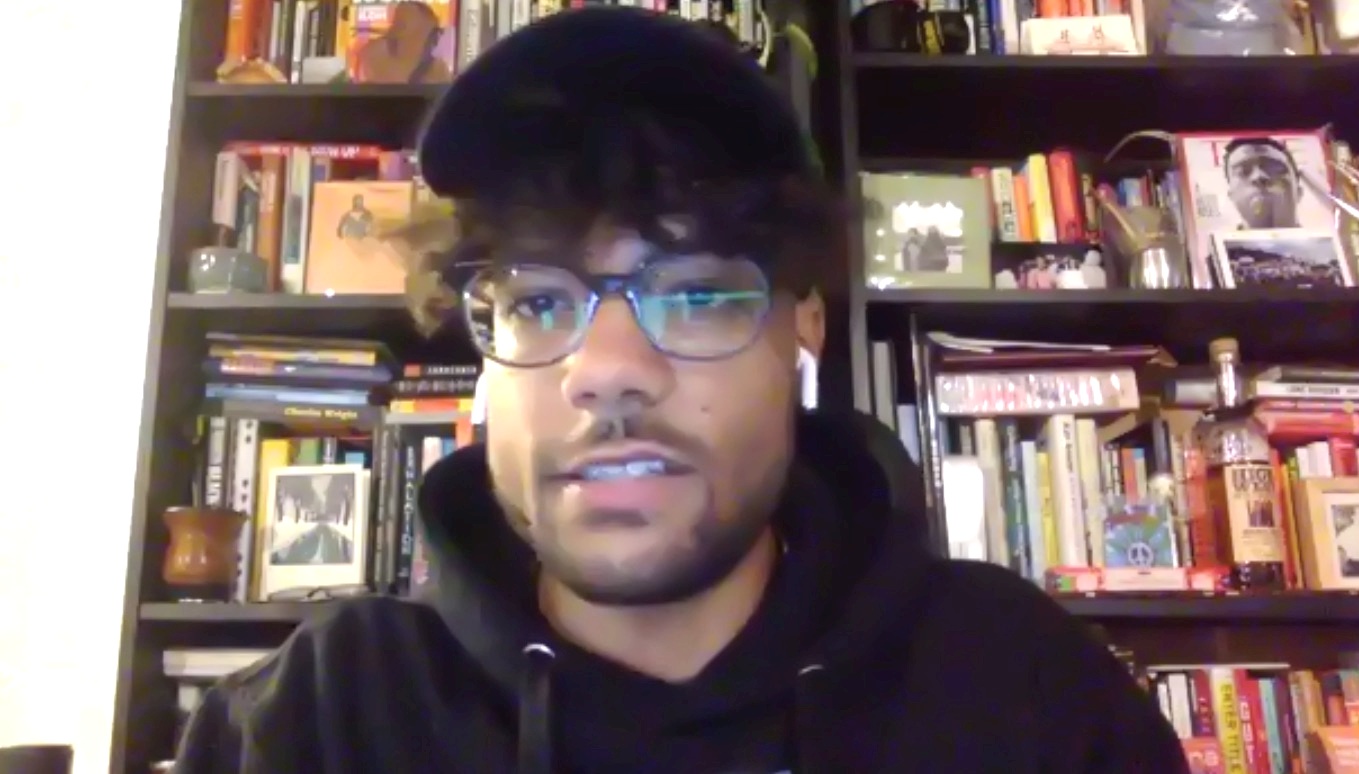 |
| Mateo Askaripour |
"When you think of a salesperson, who do you think of?" asked Mateo Askaripour, debut author of Black Buck (Houghton Mifflin Harcourt, January 2021). "I picture Vin Diesel, Alec Baldwin in Glengarry Glen Ross, Michael Douglas in Wall Street." Askaripour spoke of his own experience as a salesperson managing a couple dozen other salespeople at a tech startup. "Salespeople are ripe for disruption. I hired a handful of Black and brown people but I wish I'd done more. I wish I'd taught them how to handle it." Askaripour set out to write a page-turning narrative and "wanted it to double as a sales manual so that anyone--especially people of color--could be a successful salesperson."
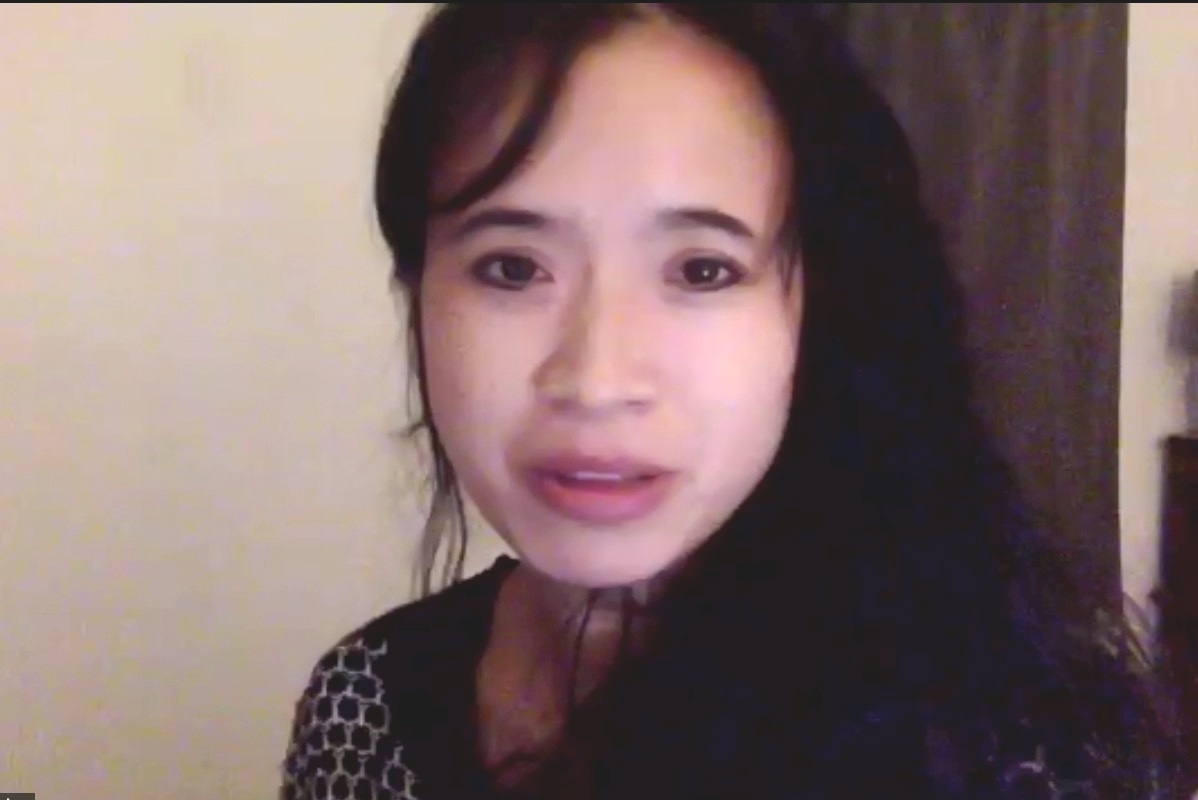 |
| Te-Ping Chen |
Te-Ping Chen based her short story collection Land of Big Numbers (Mariner Books, February 2021) on the people she met while covering China as a journalist for the Wall Street Journal. An elderly farmer living in the countryside decides to build a robot to make noodles, smashed with garlic and sesame, as a way to impress his neighbors and win his way into the Communist party. "Robots really do make noodles in China," Chen said. Another story depicts a neighborhood in Beijing when a new fruit arrives and upends lives. Yet another features twins who go in different paths--one a professional gamer, the other a political activist. Raised in Oakland, Calif., Chen considers herself authentically Chinese, yet no one in her family had been back to China in a generation. As a journalist, she came to love the country. "I've lived there longer than anywhere else except my hometown," she said. "China is a place where you encounter so much that's surreal, woven into the fabric of everyday life. On certain cloudy days, you knew the government would seed the clouds and make it rain. I also remember in Beijing, the fashion was to wear a green plant on your head, like an accessory. Sometimes it looked like you were in a moving field. I hope this book can create a sense of empathy between our two countries."
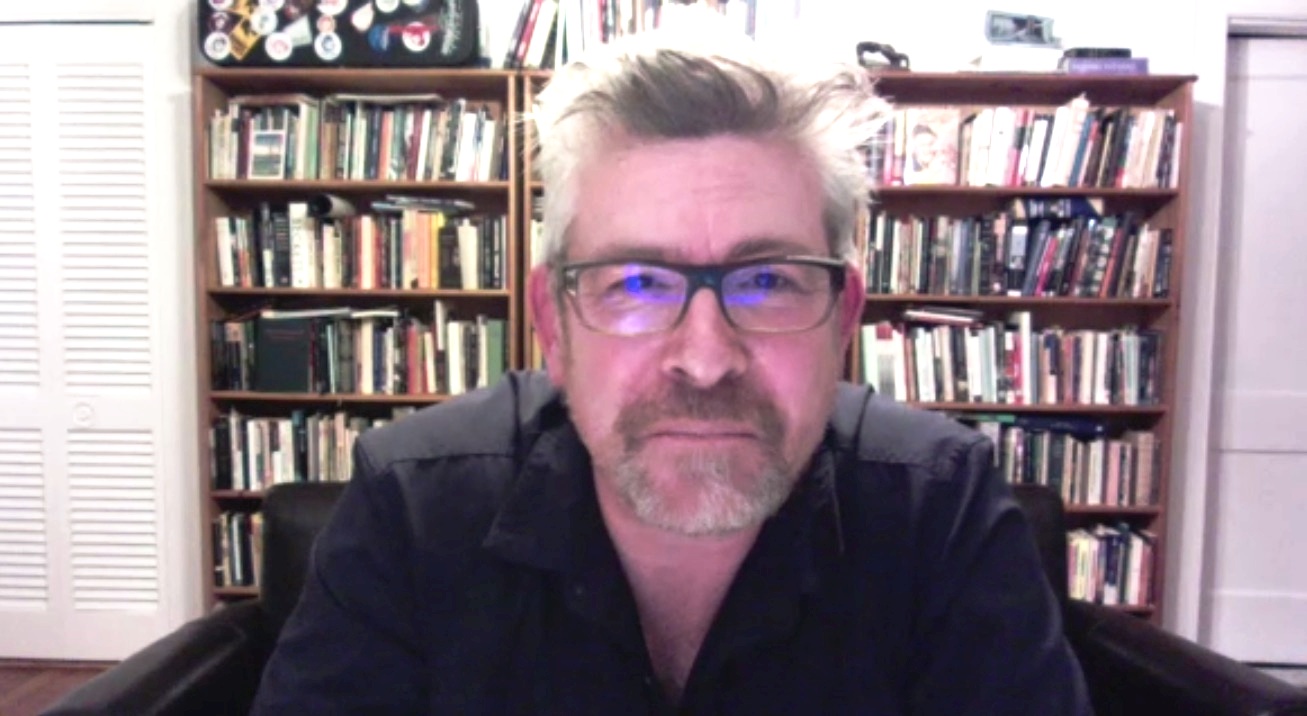 |
| Laird Hunt |
Laird Hunt set his novel Zorrie (Bloomsbury, February 2021) in rural Indiana, where he spent summers on his grandmother's farm. Here was "a life marked by love, loss, yearning, contentment and frustration, doubt and grace." He called the book "a love letter to a way of life that meant everything to me." It took him 30 years to find a way to tell it. "The core of the book has been with me for a long time," Hunt said. He showed images of the cemetery where his grandmother is buried, a field of corn encroaching on an abandoned barn on all four sides. "There's a lot of loss in this book. Cemeteries are rarely mentioned, though they're all over this place."
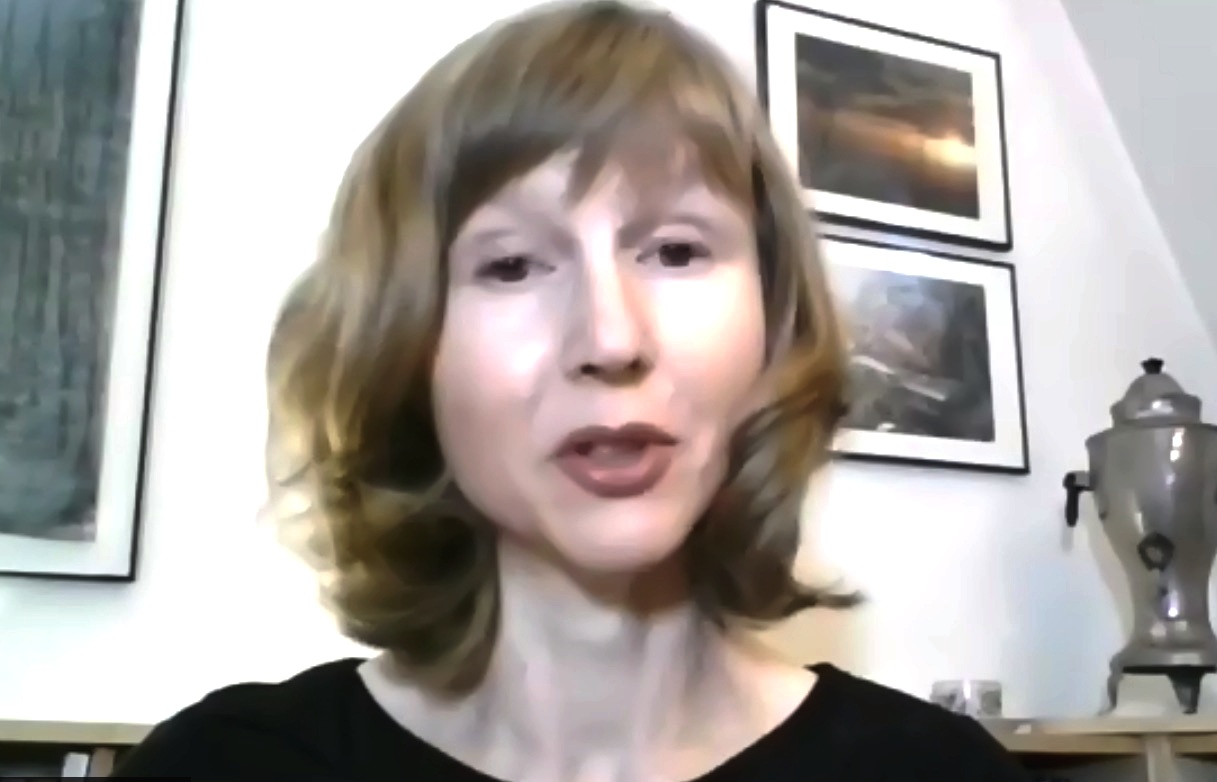 |
| Janet Skeslien Charles |
Janet Skeslien Charles's The Paris Library (Atria, February 2021) is set in occupied World War II Paris, and based on a true story. "It's the Nazis vs. the librarians, and the librarians win," she said. They defy the Nazis to deliver books to Jewish citizens. The Paris Library was a depot for the books, but people wanted it to be a real library. Dorothy Reader came to Paris on her own, started in the periodical section and worked her way up to directress. Boris, a Russian, was head librarian and went on to make a full recovery after being shot in the lung by a Nazi soldier. There was a woman from Ohio who had married a French count. During the war she was 70 years old, and so worried about the library she slept there to keep watch. Charles came to Paris for one year, "as many of us do," she said. "I met my husband here and stayed."
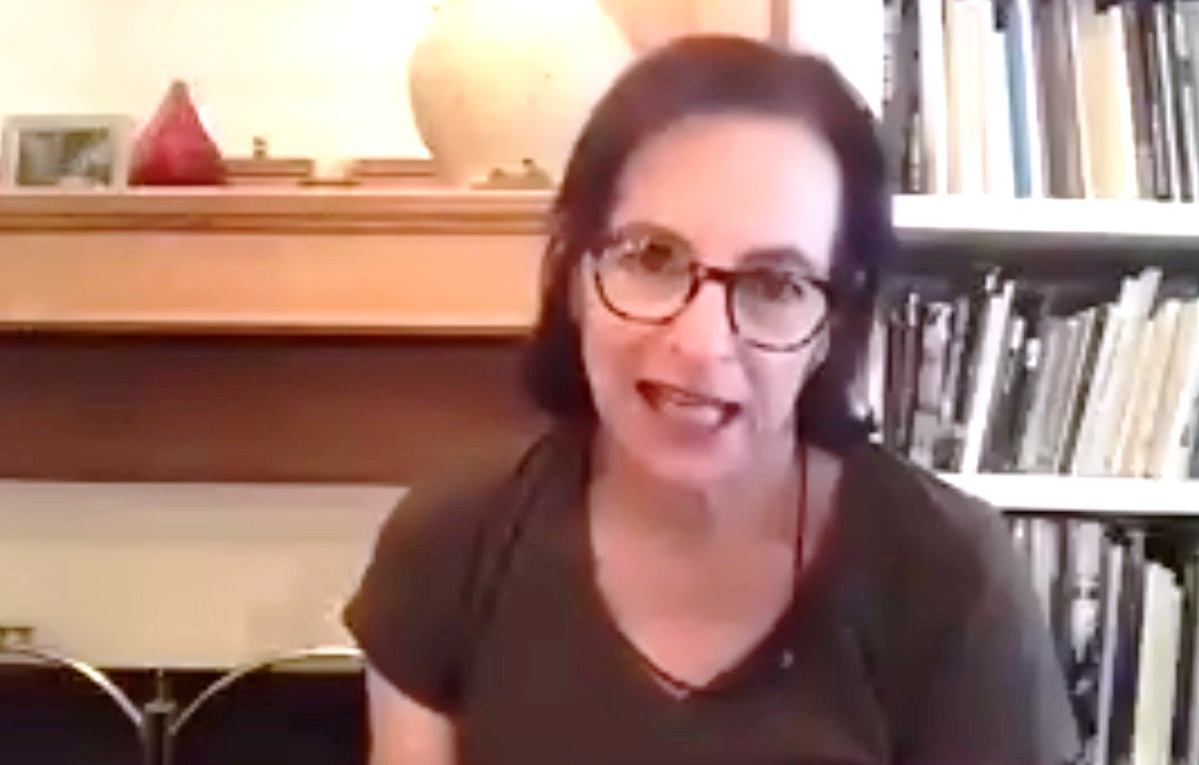 |
| Katherine Seligman |
Longtime journalist Katherine Seligman's debut novel is At the Edge of the Haight (Algonquin Books, January 2021). Her character flees Los Angeles and ends up living in Golden Gate Park. She's always taken care of herself, so she thinks she can now--until she discovers a body. "This story takes place in an area people don't often see: the homeless of San Francisco," Seligman said. "It's fiction, but I have lived here, been a writer and journalist for 25 years in the middle of Haight Ashbury, the birthplace of the hippie movement." The author said that ever since the Summer of Love more than 50 years ago, kids and drifters have come through the neighborhood. "You won't see Jerry Garcia, Janis Joplin--there are fewer musicians and more tech workers," she said. The seed of the novel was the night she and her husband were driving through Golden Gate Park, and a man threw himself in front of their car, begging for help. They called the police, and they shone a light on a man who was breathing his last. Seligman said, "I couldn't get this out of my head: How many people outside my window had been leading these secret lives?" --Jennifer M. Brown, senior editor
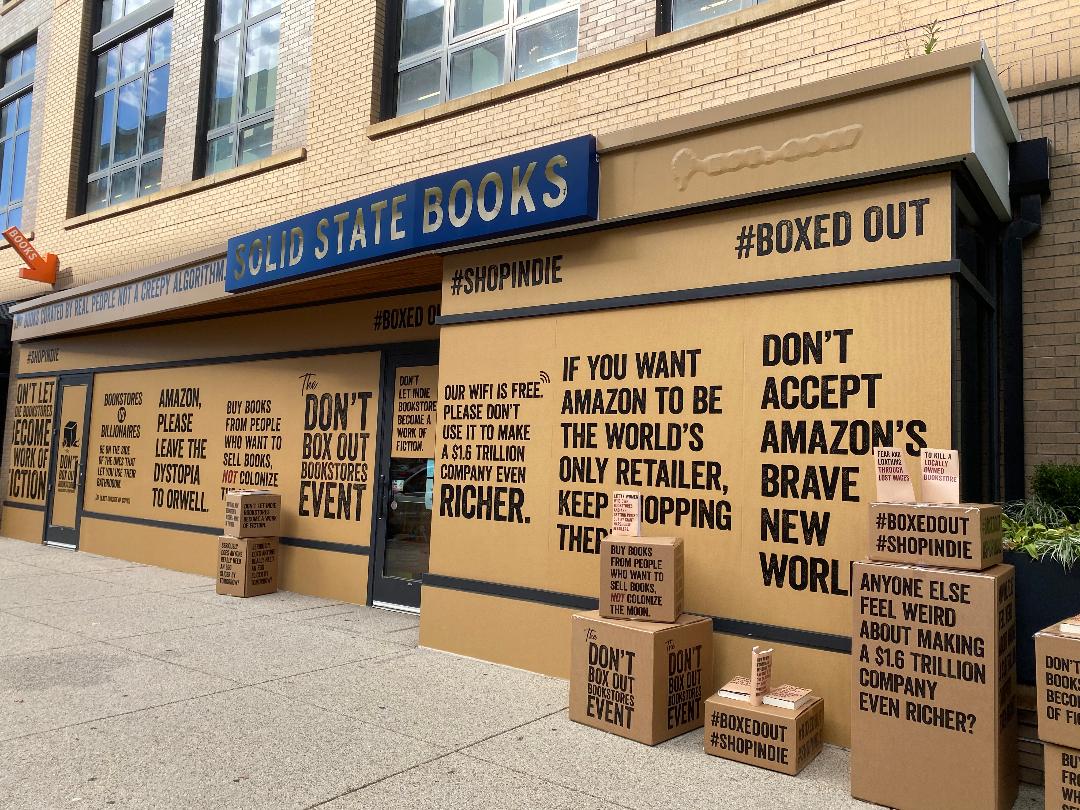
 The key elements of "Boxed Out" are a social media campaign, posters and other material as well as major "Boxed Out" displays. Six bookstores--McNally Jackson, New York City; Greenlight Bookstore, Café con Libros and Community Bookstore, Brooklyn, N.Y.; Solid State Books, Washington, D.C.; and Book Soup, West Hollywood, Calif.--are setting the standard by using custom-made signage to cover their front windows, and setting piles of boxes on sidewalks outside. The window coverings and boxes feature a range of "Boxed Out" slogans, including "The Don't Box Out Bookstores Event," "Buy Books from People Who Want to Sell Books, Not Colonize the Moon," "#BoxedOut #ShopIndie," and "Our Wifi Is Free. Please Don't Use It to Make a $1.6 Trillion Company Even Richer." Another 14 stores are helping launch a targeted Twitter campaign, and all ABA member bookstores are being provided with social media assets as well as posters and DIY materials to create displays or even their own versions of the large displays.
The key elements of "Boxed Out" are a social media campaign, posters and other material as well as major "Boxed Out" displays. Six bookstores--McNally Jackson, New York City; Greenlight Bookstore, Café con Libros and Community Bookstore, Brooklyn, N.Y.; Solid State Books, Washington, D.C.; and Book Soup, West Hollywood, Calif.--are setting the standard by using custom-made signage to cover their front windows, and setting piles of boxes on sidewalks outside. The window coverings and boxes feature a range of "Boxed Out" slogans, including "The Don't Box Out Bookstores Event," "Buy Books from People Who Want to Sell Books, Not Colonize the Moon," "#BoxedOut #ShopIndie," and "Our Wifi Is Free. Please Don't Use It to Make a $1.6 Trillion Company Even Richer." Another 14 stores are helping launch a targeted Twitter campaign, and all ABA member bookstores are being provided with social media assets as well as posters and DIY materials to create displays or even their own versions of the large displays. "People may not realize the cost and consequences of 'convenience shopping' until it's too late," ABA CEO Allison Hill commented. "More than one indie bookstore a week has closed since the Covid-19 crisis began. At the same time, a report forecasts that Amazon will generate $10 billion in revenue on October 13 and 14 during its Prime Day promotion. Connecting these dots, it's clear to see convenience has a cost and a consequence. Closed indie bookstores represent the loss of local jobs and local tax dollars, the loss of community centers, and the loss of opportunities for readers to discover books and connect with other readers in a meaningful face-to-face way."
"People may not realize the cost and consequences of 'convenience shopping' until it's too late," ABA CEO Allison Hill commented. "More than one indie bookstore a week has closed since the Covid-19 crisis began. At the same time, a report forecasts that Amazon will generate $10 billion in revenue on October 13 and 14 during its Prime Day promotion. Connecting these dots, it's clear to see convenience has a cost and a consequence. Closed indie bookstores represent the loss of local jobs and local tax dollars, the loss of community centers, and the loss of opportunities for readers to discover books and connect with other readers in a meaningful face-to-face way."


SHELFAWARENESS.1222.S1.BESTADSWEBINAR.gif)


SHELFAWARENESS.1222.T1.BESTADSWEBINAR.gif)
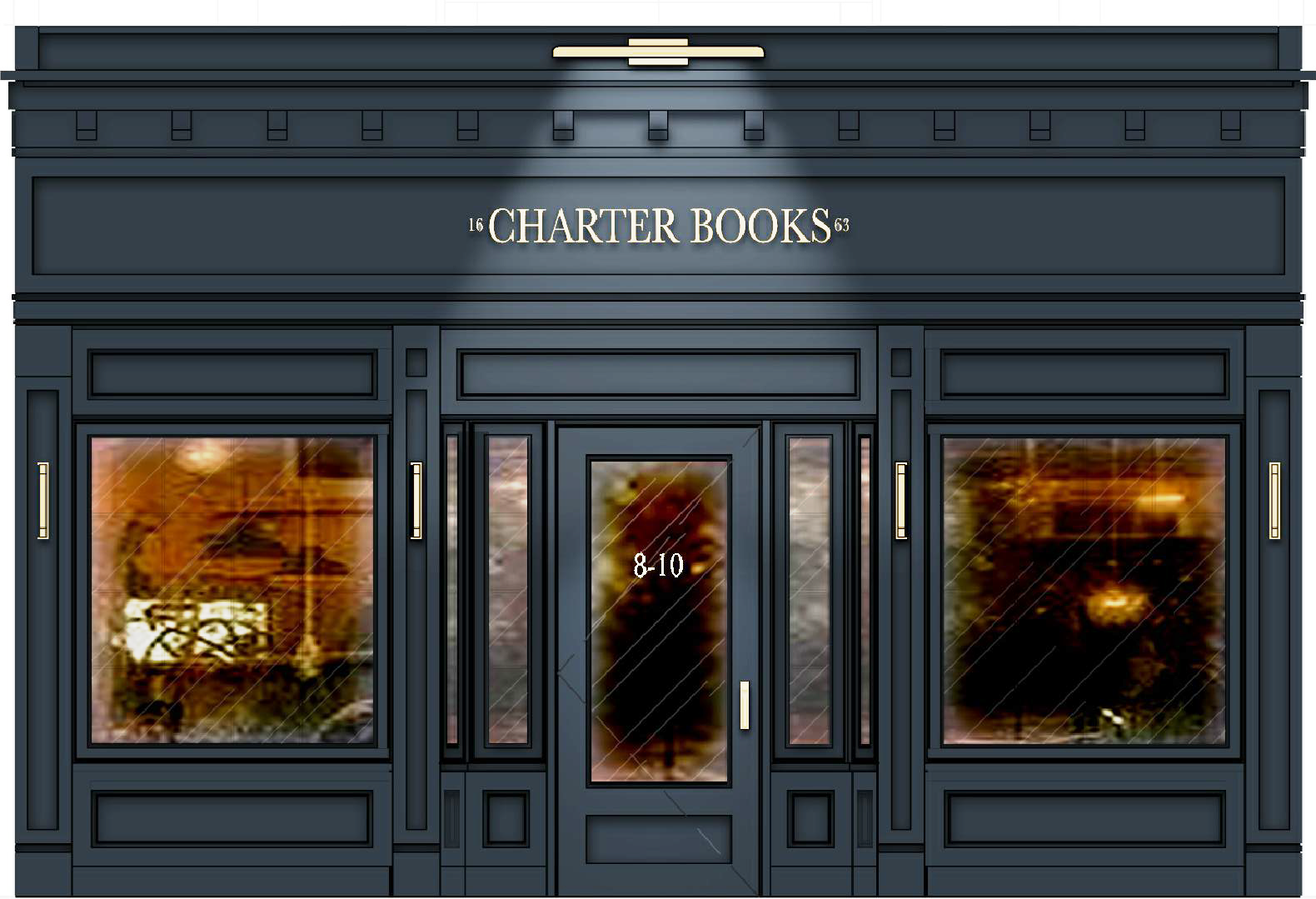
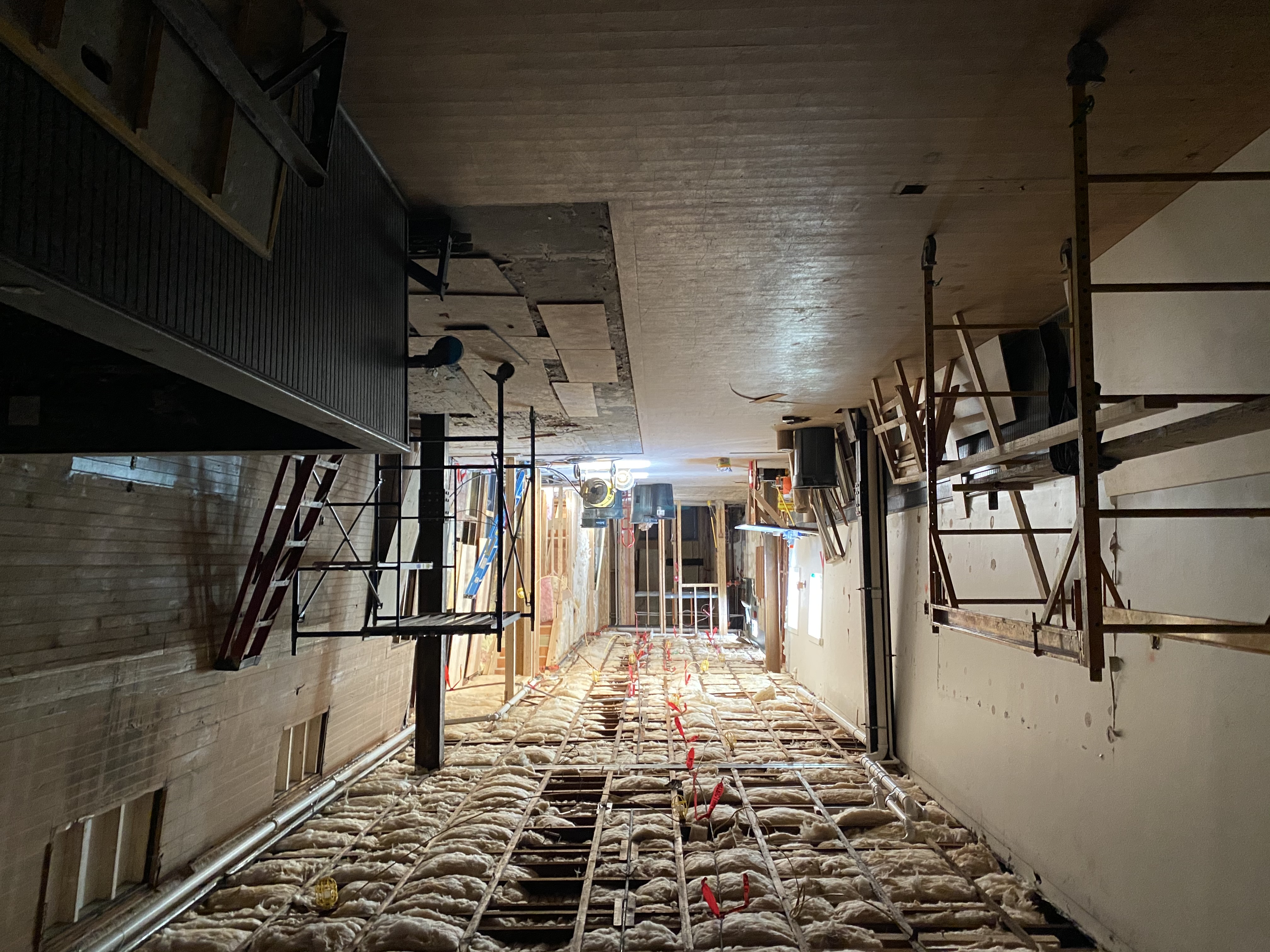

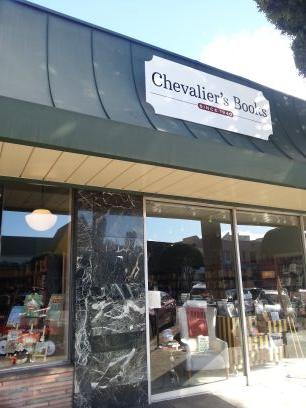
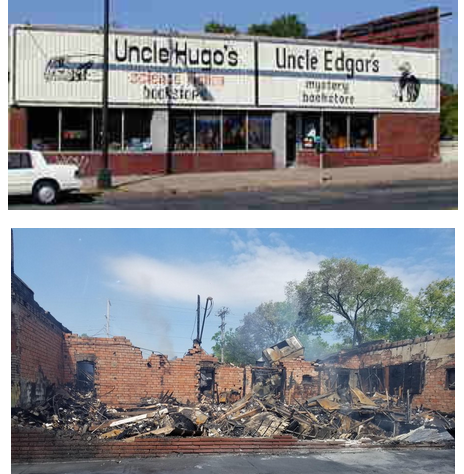 Don Blyly, owner of
Don Blyly, owner of 
 For Thursday night's
For Thursday night's 





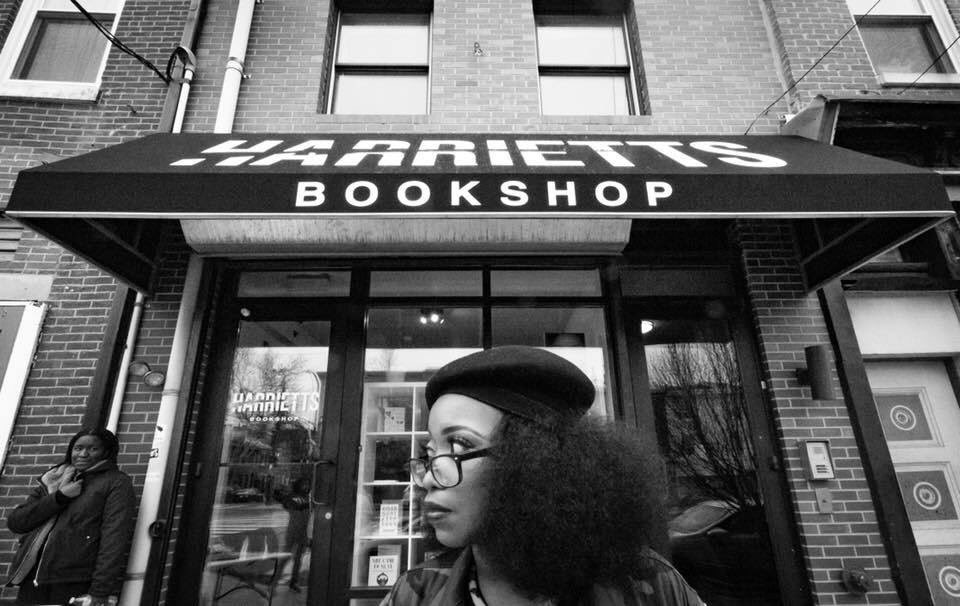 "Wade in the Water. Yes, there is forecasted rain for today. And the question is do we move forward or retreat, yet again, on the
"Wade in the Water. Yes, there is forecasted rain for today. And the question is do we move forward or retreat, yet again, on the 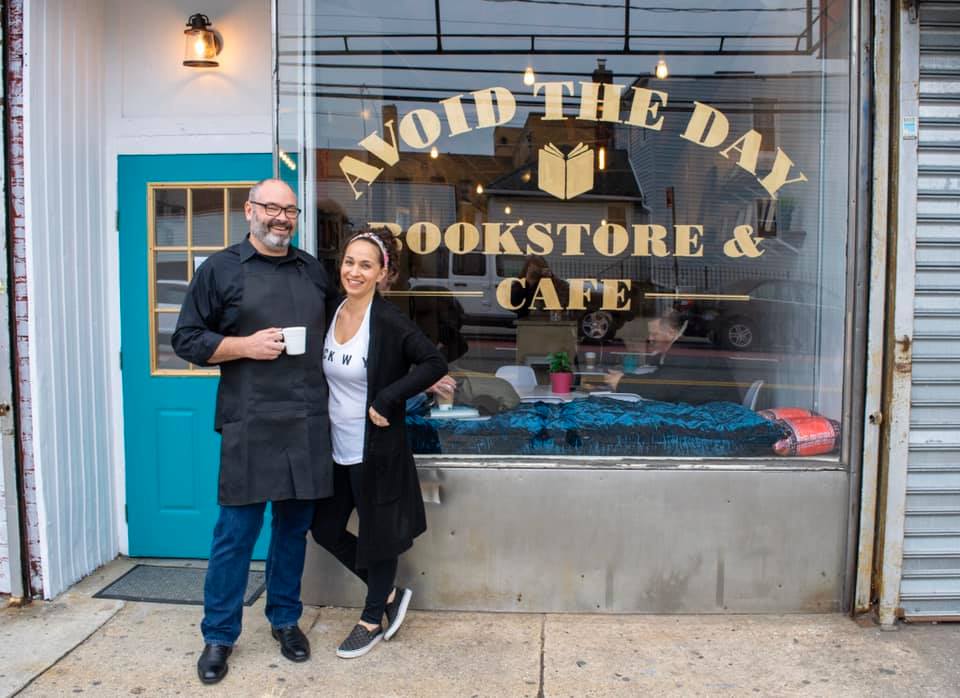 WPIX-TV's "
WPIX-TV's "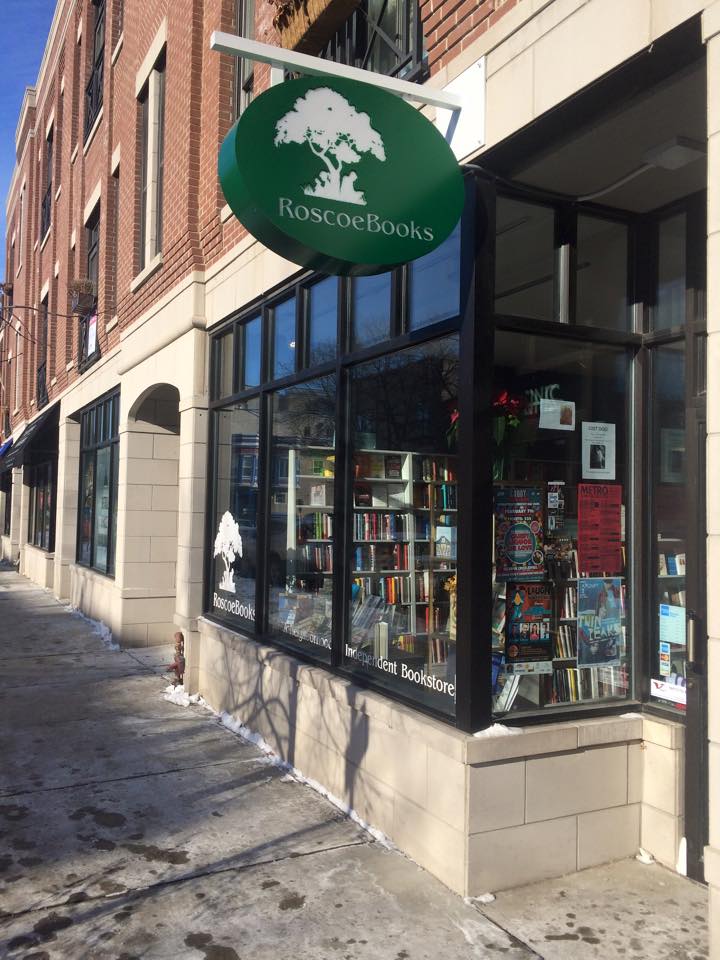 "We know it's a bit unusual to
"We know it's a bit unusual to 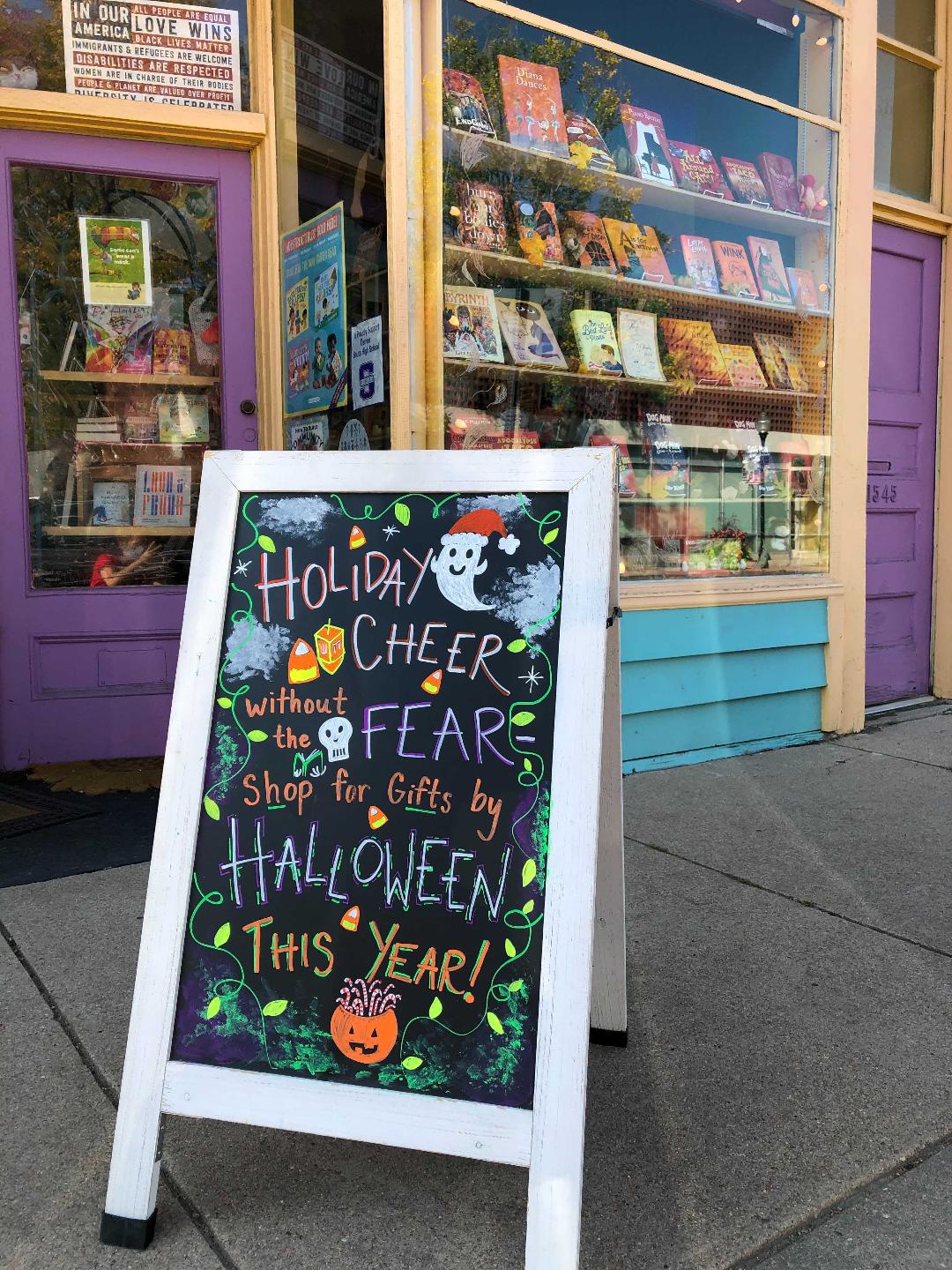 Second Star to the Right
Second Star to the Right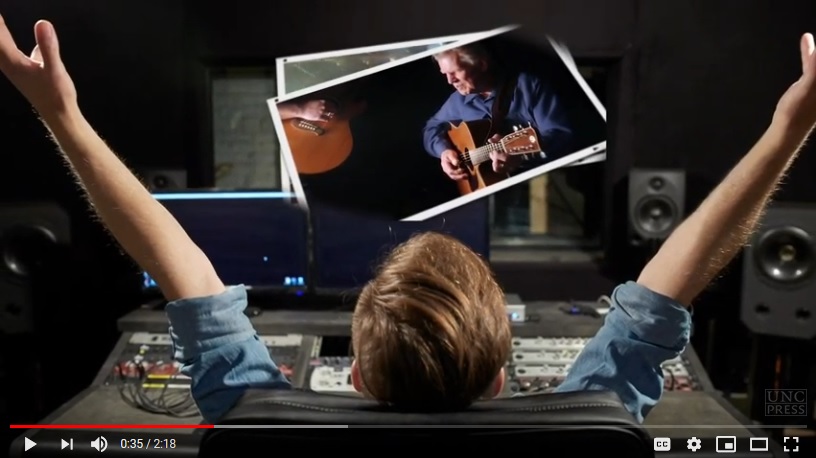 Step It Up and Go: The Story of North Carolina Popular Music, from Blind Boy Fuller and Doc Watson to Nina Simone and Superchunk
Step It Up and Go: The Story of North Carolina Popular Music, from Blind Boy Fuller and Doc Watson to Nina Simone and Superchunk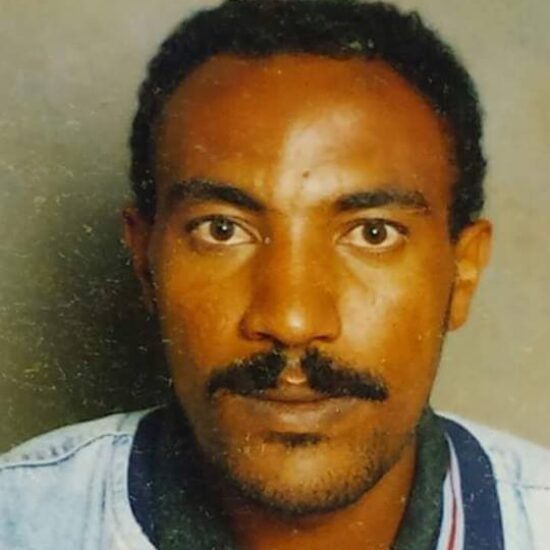
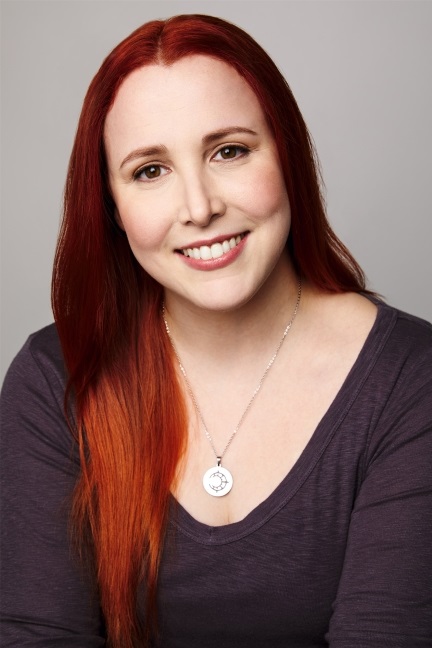
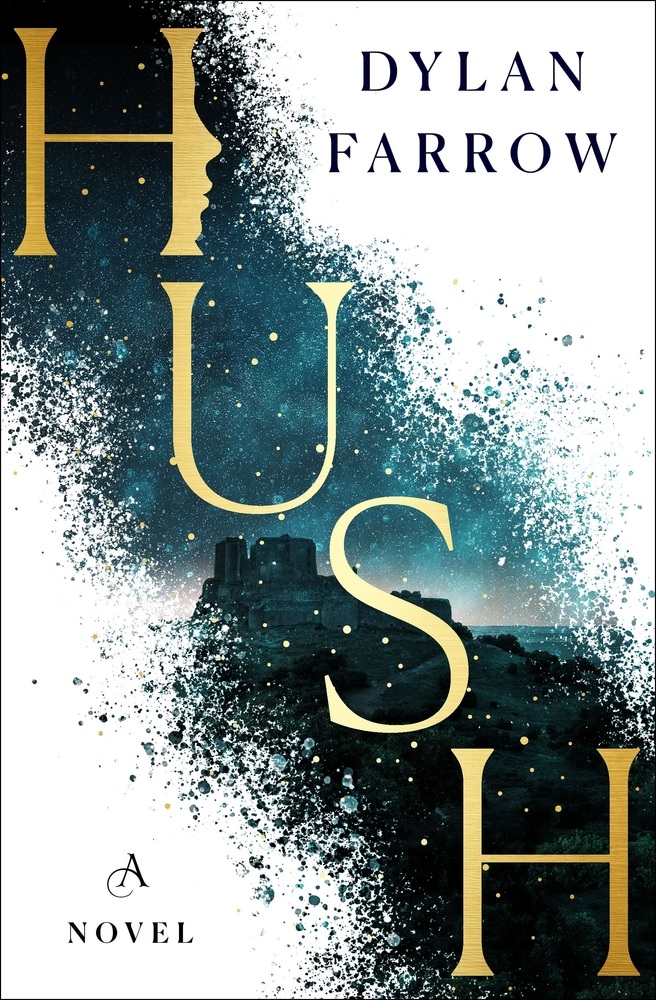 Book you're an evangelist for:
Book you're an evangelist for: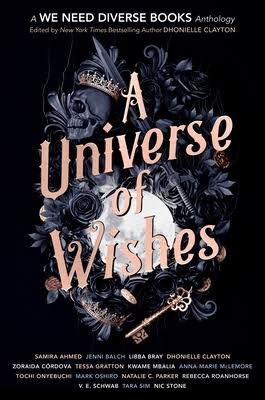 Through this inclusive We Need Diverse Books (
Through this inclusive We Need Diverse Books (